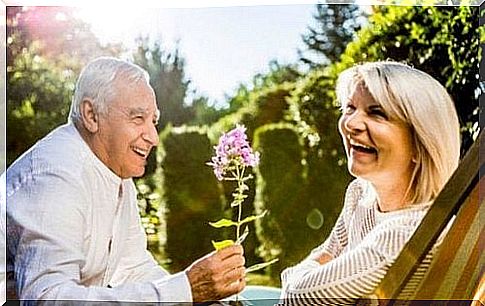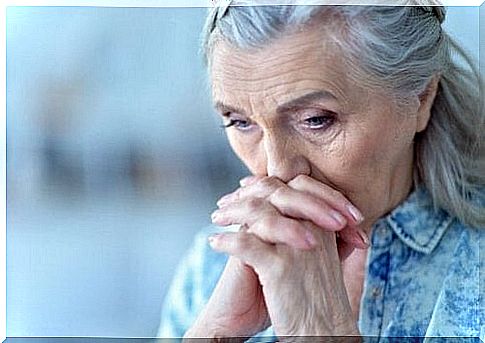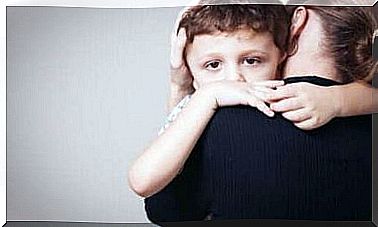Emotional Intelligence In The Elderly

New studies show an average higher emotional intelligence in the elderly. This may be because they value their personal relationships and take care of them. Older people know how to appreciate the present.
They adjust their emotions to match what is going on around them so that they can enjoy each moment to the fullest. Older people have a relaxed and optimistic perspective on life.
The results of this study from the University of Texas and the University of California, Berkeley, may surprise you. Today, we tend to have a rather negative perception of older people and the aging process. We associate getting older with physical impairment and relapse of cognitive abilities.
When we think of aging, we inevitably think of unhappiness, low motivation and social / emotional isolation. In other words, we are thinking of losses.
Experience teaches you to control your emotions
Reaching this stage of life with good health is, of course, important in order to meet old age with optimism. The fewer restrictions, the more opportunities and freedom you get. Personality and circumstances also come into play, of course.
It is also quite obvious that the attitude with which you meet every day depends a lot on how you have lived your life so far and what opportunities you have had.
These studies show that people’s ability to deal with their emotions and recognize the emotions of others improves, on average, after the age of 60.
This is not a fixed rule. This does not mean that everyone’s emotional intelligence improves over time. This means that experiences help most people learn to control their emotions. With time and experience, they can prioritize their relationships with others better.

Emotional intelligence in the elderly
Being a senior or being a person over 60 is not synonymous with loneliness, dissatisfaction and decline. That is certainly not the case, and it has not been the case for more than a decade. The life expectancy of the majority of the population is 80 years, which means that 60 is practically like being young again.
When you reach the age of 70, you are in a stage of mature retirement age. With life expectancy, we are seeing older people being more active than ever before.
Older people these days participate in many different activities in their communities. They travel, hang out with their friends and take care of their grandchildren. They are a source of constant and almost indispensable support for their children.
Many seniors also suffer from physical ailments or the loss of loved ones. However, most seniors demonstrate very sophisticated emotional skills.
How do they do it? They will have to deal with their physical decline, health problems, money and social issues… So how can the elderly maintain such a high level of emotional well-being? The Journal of Gerontology at Oxford University explains the following:
Theories that explain the increase in emotional intelligence in older adults
Here are some of the hypotheses that could explain the feeling of well-being that we see in many older adults:
Socio-emotional selectivity
- Emotional intelligence in older adults can be explained by the theory of socio-emotional selectivity. There comes a moment when you realize that your life will soon end. This idea, this personal and existential reality, enables you to focus your behavior on emotionally satisfying experiences. You no longer worry about a future reward. You would rather enjoy your well-being here and now. Long-term plans are starting to mean less and less.

Dynamic integration
- The dynamic integration theory suggests another explanation. Aging makes people realize how their physical and cognitive abilities deteriorate, little by little. They are not as flexible as they used to be. They may be living with hip pain, diabetes, arthritis, etc.… When faced with a reality that they cannot change, many seniors choose to focus on positive emotions to improve their own balance and happiness. In the end, emotions are something you can control.
- Experience forms the emotional intelligence of older adults. The passage of time has taught them how to better control certain emotional situations. They understand how emotions work. They can handle them better and they are better at recognizing other people’s needs.
- Another interesting and revealing aspect of all this is called the “positivity effect”. There are people who weigh their experiences and decide to hold on to the most joyful. This is like a personal filter that helps you focus on the positive. It allows you to create important relationships with others, and see everything through an optimistic lens.

How to promote an emotionally intelligent and positive old age
Good emotional intelligence in the elderly means that they get a better quality of life. It also helps your physical health. Good emotional control reduces stress and depression. It helps with all the daily challenges that you face in life as an older adult: loss, illness, addiction, etc …
Remember that emotional intelligence is not automatic. It does not just show up when you reach a certain age. Not everyone knows what it is. And if you know what it is, you may not be able to use it in the most efficient way. Thus, it would be interesting and perhaps beneficial for society to offer emotional intelligence programs to older people.

These programs could be interdisciplinary initiatives that can take each story and context into account. Aging is sometimes accompanied by a kind of personal crisis. Lack of motivation and depression can become overwhelming.
Helping our seniors develop empathy, emotional control, and social skills would make this transition phase easier for them.
In conclusion, we believe that emotional intelligence in the elderly (and everyone else) is the key to good health. It enables the elderly to live a more fulfilling and happy life. After all, life expectancy is rising every day. We have the right to the best resources that can help us live our lives to the fullest.








